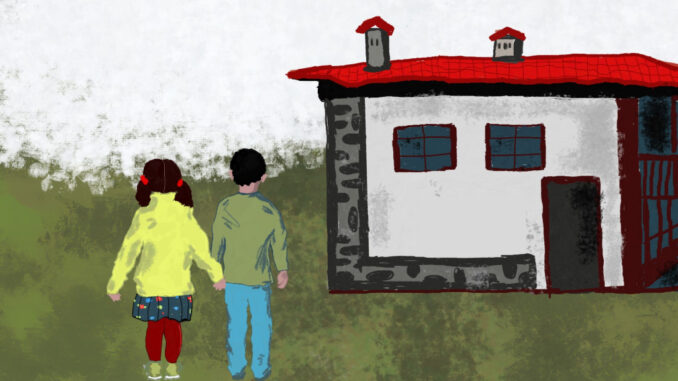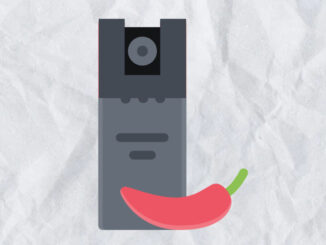
Human rights activists from the European Roma Rights Centre (ERRC) and the Equal Opportunities Initiative have today called for major reform of the childcare system in Bulgaria to end discriminatory child removals and institutional segregation of Romani children. New research published today by the organisations reveals a creaking, underfunded system beset by institutional racism, with significant policy gaps at a national level to address the overrepresentation of Romani children and continued use of institution care homes over family-based care.
“Our research shows cracks in a system that is under immense pressure, that’s true, but the problems run deeper and are indicative of very widespread discrimination against Romani families at all levels of the care sector” said the ERRC’s President, Đorđe Jovanović. “While the government has closed the large-scale children’s homes in favour of smaller group homes, these places are still located far away, cut off from communities. They are still largely segregated places, with most of the children being from Romani families. And importantly, they are still institutions, no matter how small they are, and are no replacement for a family environment. No child should have to grow up in an institution.”
Daniela Mihailova, Legal Director of the Equal Opportunities Initiative, said ”this research sheds light on the untold stories of Romani children in institutional care, highlighting the urgent need for inclusive policies that honour every child’s right to a nurturing environment and equal opportunity. We believe that every child, regardless of background, deserves a future free from discrimination and filled with promise.”
The new report builds on more than a decade of research and litigation by the European Roma Rights Centre (ERRC) and its partners. This work has revealed that Romani children have long been overrepresented in state care institutions compared to their proportion of the population as a whole in Bulgaria, as well as countries such as the Czech Republic, Hungary, Italy, Romania, and Slovakia.
Today’s research reveals biased attitudes and perceptions about Romani people within the care sector, including doubts about their parental capacity and willingness to care for their children within a family environment. One interviewee described how the high number of personnel who exclude or blame vulnerable groups allows discriminatory and stigmatising practices to be perpetuated, a problem that has been masked for years by lack of data.
While the ERRC has been aware for a number of years that Bulgarian institutions record the ethnicity of children in care, the authorities choose not to publish this data in an anonymised and disaggregated way to reveal the official number of Romani children in the care system. The research published today shows that over half of children placed in the examined facilities for state care were of Romani origin. Widespread stereotypes and discrimination mean that Romani children are often less accepted by foster families and as a result are instead placed in state institutions where the majority of children are also Roma.
In the surveyed Romani communities, discriminatory attitudes within the care sector were coupled with deep fears of the institutions held by vulnerable Romani parents with a lived experience of discrimination. This causes many to cast doubt that officials always act in the best interests of the child. When surveyed, over half of Romani respondents believed that social workers may not be working in the child’s best interest to remain within the home environment. A further 63.3% of respondents believed that people in their neighbourhood were scared that social services or the Child Protection Directorate might take away their children.
The high number of child removals from Romani families is the result of a combination of prejudiced stereotypes and racialised poverty. While it is illegal to remove children solely based on reasons of poverty, this still accounts for the greater number of child removals. The quantitative survey indicated that the decision to place a child in institutional care is typically made either immediately after birth or even before the child is born. Prevention (rather than removal) was found to have often been overlooked as a meaningful intervention to address family separations.
The research revealed a social system in crisis due to a lack of specialists, underfunding, and a centralised management system. In this system, top-down decisions are made that are often very general, precluding specialisation by location or approaches that are individualised and tailored to the context.
The organisations recommend several measures to ameliorate the crisis in the care sector, including that authorities place greater emphasis on the prevention of child abandonment and removal in primary child protection legislation, in particular by providing stronger measures to support parents and reduce the need for alternative care. Stronger public policies on child protection at national and local level should be enacted, in collaboration with NGOs actively working in the field of childcare. In order to adopt measures specifically targeted at preventing removal of children on account of socio-economic factors, central and local authorities should conduct a focused survey investigating the reasons behind the separation of Romani children from their families.
The report “Forgotten Futures: Romani Children in State Care in Bulgaria” is available here in English and Bulgarian.
This press release is also available in Bulgarian.
redaktionen@dikko.nu
Att vara en oberoende tidning kostar pengar därför använder vi oss av crowdfunding. Det innebär att människor med små eller stora summor hjälper till att finansiera vår verksamhet. Magasin DIKKOs insamlingen sker via swish: 123 242 83 40 eller bg: 5534-0046
Vill du annonsera eller sponsra, synas eller höras i våra media?
Kontakta oss på redaktionen@dikko.nu
eller ring 0768 44 51 61
IBAN: SE19 9500 0099 6042 1813 4395
BIC: NDEASESS




